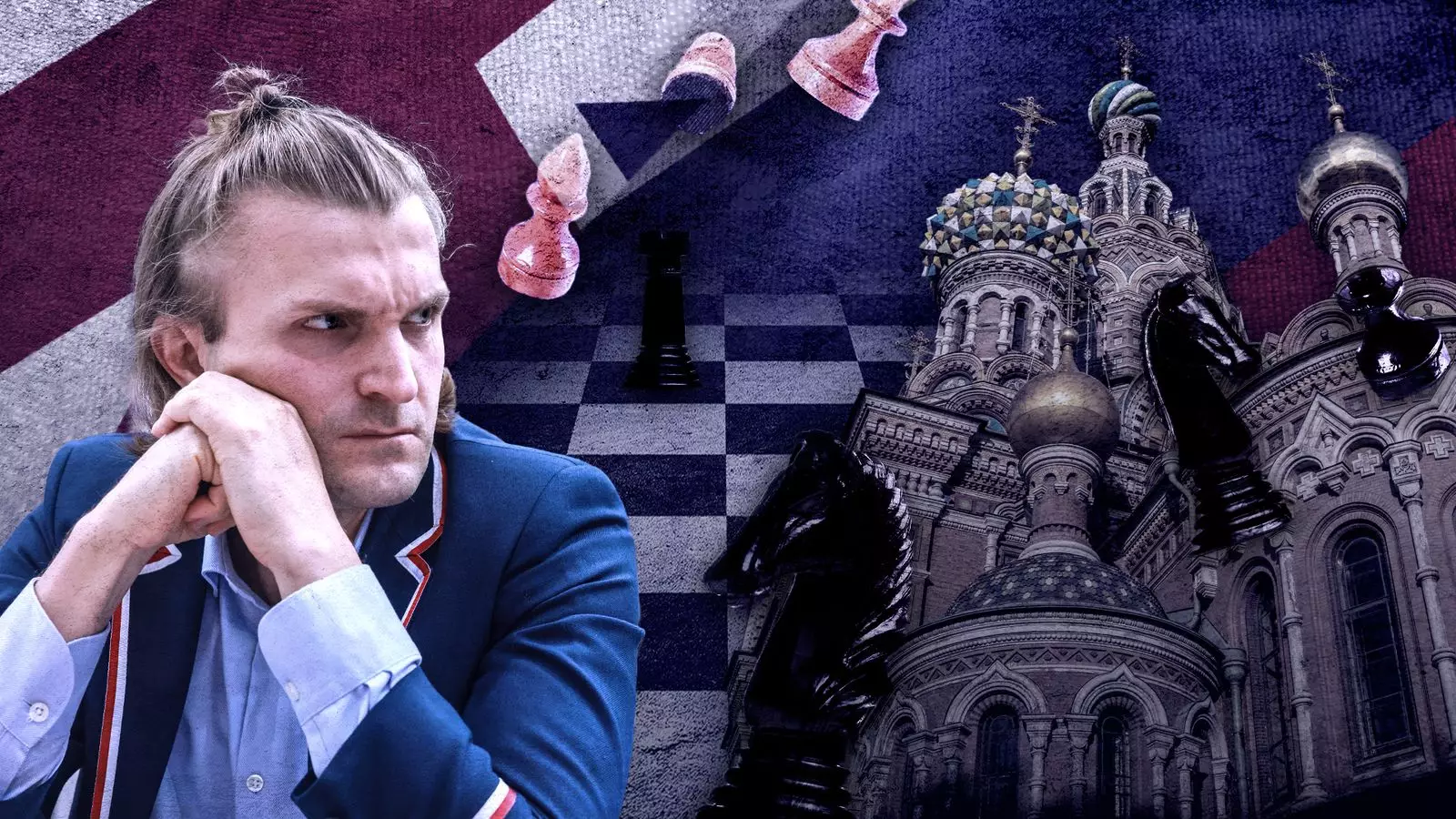Nikita Vitiugov, a chess grandmaster renowned for his strategic acumen and fierce competitive spirit, has found himself at a crossroads. Once a cherished talent in the Russian chess scene, his outspoken condemnation of the war in Ukraine has led him to embrace a new life in London. The juxtaposition of learning and competition in chess with the harsh realities of geopolitical conflict is starkly evident in his story. As a player who has always felt a strong connection to his homeland, that allegiance complicates his new identity as he represents England on the chessboard.
Nestled among the clouds and rain that characterize London’s weather—a climate he finds reminiscent of St. Petersburg—Nikita has carved out a home for himself and his family. However, his admiration for the city is tinged with the awareness of the ramifications of his actions back in Russia. He has become a symbol of defiance, choosing not only to leave but also to advocate for peace while navigating the tensions that arise from his nationality.
In today’s chess landscape, the high-stakes rivalry reminiscent of the Cold War era may have dulled, but the politics surrounding the game have revived. Just as the players of yesteryears like Garry Kasparov and Bobby Fischer seized headlines amid ideological tensions, contemporary Russian players like Nikita are now facing conflict from within. The chessboard, once a neutral arena for intellectual warfare, has become the stage for profound moral decisions in light of Russia’s aggression.
Nikita’s shift in allegiance is particularly striking—while other Russian players have chosen to compete under various national flags, his prominent adoption of the English flag underscores a larger narrative of resistance against the narrative imposed by the Kremlin. He vividly recalls a Russian television segment that scrutinized players who switched their national ties, a reminder of the precariousness that dissent entails. The dichotomy remains palpable: in Russia, the media vilifies those who diverge from the official stance, while in London, Nikita experiences a sense of liberation—or as he calls it, a genuine home.
The personal challenges Nikita faces reflect a broader struggle. Having once been the pinnacle of Russian chess, where he envisioned future victories on the international stage, he now grapples with the aftermath of cutting those ties. The trauma of leaving behind his past achievements parallels feelings of heartbreak—akin to a divorce. His journey presents a complex emotional landscape characterized by both loss and re-birth.
Background roles in the chess community are significant too. The recent sanctions against the Russian Chess Federation highlight a perplexing reality: the chess community is grappling with its own form of purging. For Nikita, the transition to the English Chess Federation has not only restored his competitive edge but has also emphasized the importance of identity. Though he understands that some may view representation as mere formalities, for him, it’s a matter deeply intertwined with pride and belonging.
Settling in London opened doors that were previously barred by the political climate of his home country. With newfound freedoms, Nikita is committed to cultivating a better future for his son, emphasizing the importance of living in a society where varied opinions can flourish without fear of retribution. In a world where opinions are often silenced, he finds solace in a place where he can express himself openly—a stark contrast to the muzzled expressions back home.
Tournaments like the London Chess Classic serve as both a platform for Nikita’s return to professional prominence and as a stage to champion his ideals. The irony of the event’s location—Arsenal’s Emirates Stadium, given his loyalty to Tottenham—adds a humorous yet poignant layer to his story. Despite personal and political upheaval, he remains focused on his love for the game and the joy of competing against some of the brightest minds in chess.
As Nikita embraces his role in English chess, he draws inspiration from historical figures like Viktor Korchnoi, who also faced a tumultuous journey from Soviet ties to Western triumph. Parallel to Korchnoi’s story, Nikita’s defection represents a shift in the competitive landscape of chess, injecting vitality into the English team and simultaneously enhancing the sporting narrative at large. His commitment to sharing knowledge with rising talents underscores the continuity of chess culture, transcending borders and conflicts.
Looking ahead, one cannot help but question: could a Russian grandmaster ascend as the next reigning force in English chess? Nikita Vitiugov’s journey is not just about rivalries played out on the board; it is an evolving story of identity, dissent, and the relentless spirit of competition. In the ever-shifting chess landscape, his narrative serves as a poignant reminder of the power of individual choice amidst societal pressures and expectations.

